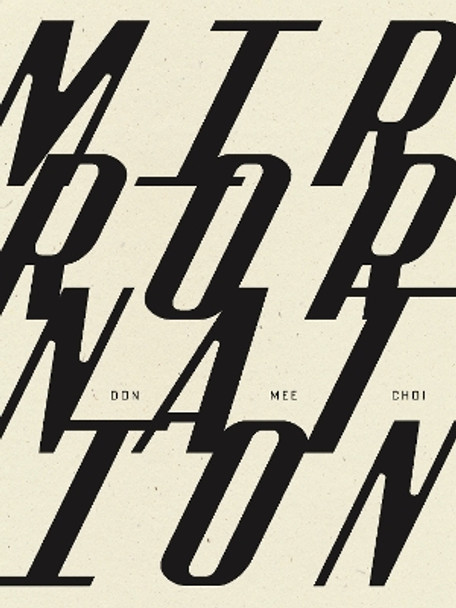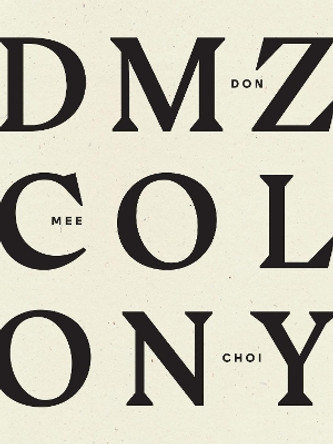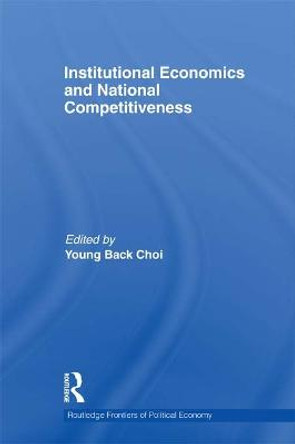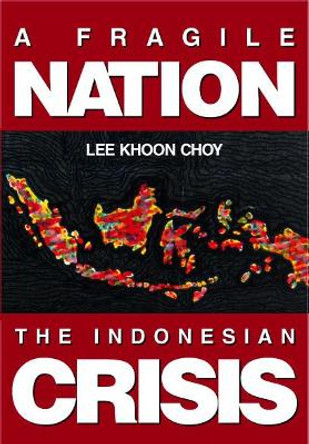Description
Elegiac and haunting, Mirror Nation by Don Mee Choi completes the KOR-US trilogy, along with Hardly War (Wave Books, 2016) and the National Book Award-winning DMZ Colony (Wave Books, 2020).
Much like Proust's madeleine, a spinning Mercedez Benz ring outside Choi's Berlin window prompts a memory of her father on the Glienicker Bridge between Berlin and Potsdam, which in turn becomes catalyst for delving into the violent colonial and neocolonial contemporary history of South Korea, with particular attention to the horrors of the Gwangju Uprising of May 1980. Here, photographs, news footage, and cultural artifacts comingle with a poetry of grief that is both personal and collective. Inspired by W. G. Sebald and Walter Benjamin as well as Choi's DAAD Artists residency in Berlin, Mirror Nation is a sorrowful reflection on the ways in which a place can hold a "magnetic field of memory," proving that history doesn't merely repeat itself; history is ever present, chiming the hours in a chorus against empire.
- Digital galley and print review copy mailings to major book reviews, literary journals, and library buyers' guides.
- Author interview pitches
- Social media campaign
- Outreach to independent booksellers.
- Outreach to poetry and related literary organizations.
- Publicity and promotion in conjunction with the author events.
- Display at conferences and bookfairs
- Co-op available
About the Author
Born in Seoul, South Korea, Don Mee Choi is the author of the National Book Award winning collection DMZ Colony (Wave Books, 2020), Hardly War (Wave Books, 2016), The Morning News Is Exciting (Action Books, 2010), and several pamphlets of poems and essays. She is a recipient of fellowships from the MacArthur, Guggenheim, Lannan, and Whiting Foundations, as well as the DAAD Artists-in-Berlin Program. She has translated several collections of Kim Hyesoon's poetry, including Autobiography of Death (New Directions, 2018), which received the International Griffin Poetry Prize.
Reviews
Blending journalism, memoir, and manifesto with photographs, maps, letters, and drawings, DMZ Colony comprises an imaginative and highly multimedia mode of accessing a space where human perspective is forbidden. In reality a restricted, literally marginal entity, the DMZ, in Choi's hands, is like an accordion, expansive and multidimensional, even planetary in scale. -Jed Munson for Chicago Review of Books
Choi's poetry is not bilingual but multilingual and increasingly multimedia, built of photography, film, drawings, handwritten letters, collage, and typographic play. The work is openly political, though Choi is modest about how honestly she came to her politics. -E. Tammy Kim for Poetry Foundation
DMZ wrestles with being a witness to oppression while not experiencing it directly, with creating art while borrowing the art of others. There is a hopefulness to her poetry, one that includes the possibility of transcendence and flight, but it is grounded in a deeply macabre reality. -Kion You for the Los Angeles Review
Choi's hybrid structure allows her, in some sense, to have it both ways-to look at her subjects while simultaneously, and paradoxically, showing that some subjects are just too big to see in full: war, your parents' life before and without you, your government and its decisions. -Kathleen Rooney, The New York Times Sunday Book Review
Formally, Don Mee Choi is an inheritor of Theresa Hak Kyung Cha, whose seminal Dictee (1982) has had a major impact on contemporary innovative American poetry. Yet Choi innovates on Cha's decades-old example. Choi's work releases new-media energy; it moves at fiber optic speed as it struggles to find term for our 21st century experience of globalized media, especially as such media affects our sense of history, commodity, violence, politics, terror, and freedom. -Joyelle McSweeney, Montevidayo
Don Mee Choi writes about violence and injustice in modalities that are neither sentimental, obvious, or pornographic. -Forrest Gander
Her writing has showed me that discomfort is neither cruel nor condemnation, but a passageway towards freedom, or towards becoming feral, or freely frayed. -Christine Shan Shan Hou, Lit Hub
Awards
Winner of National Book Award 2020 (United States). Short-listed for Four Quartets 2020 (United States).
Book Information
ISBN 9781950268931
Author Don Mee Choi
Format Paperback
Page Count 152
Imprint Wave Books
Publisher Wave Books





